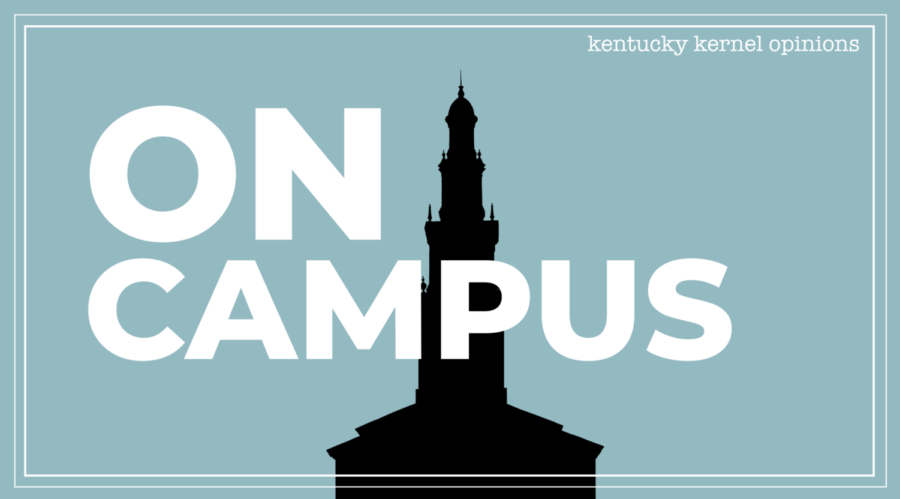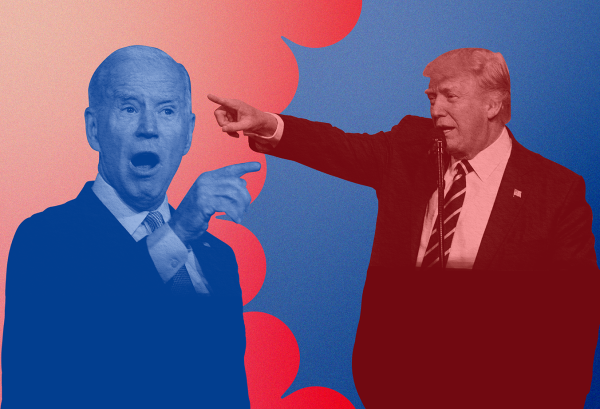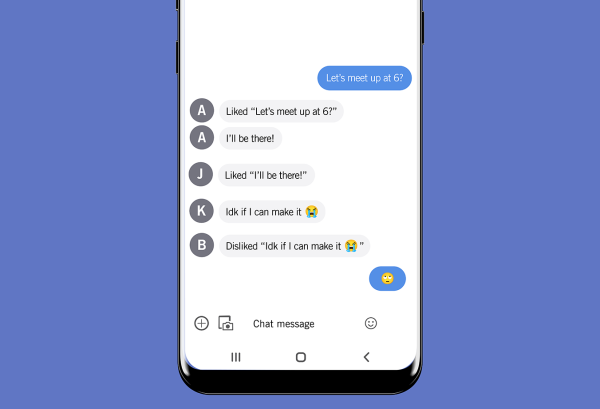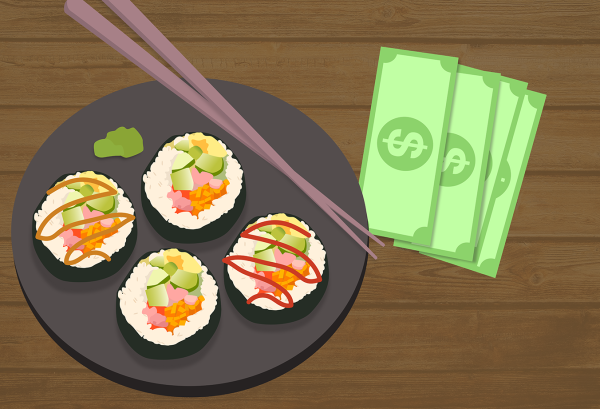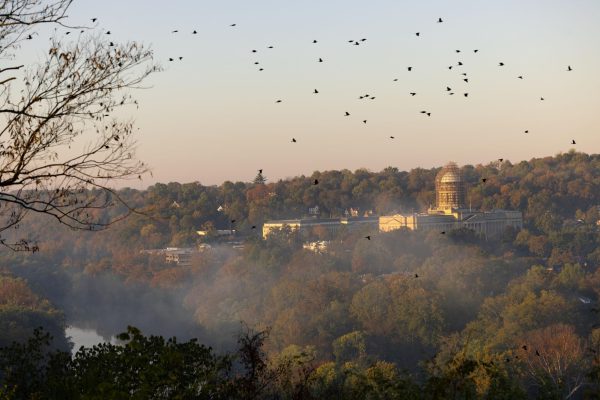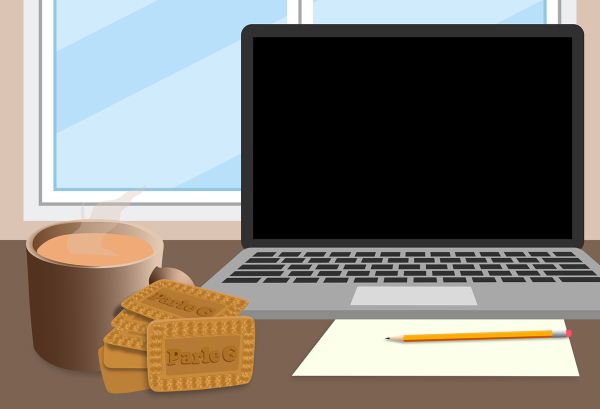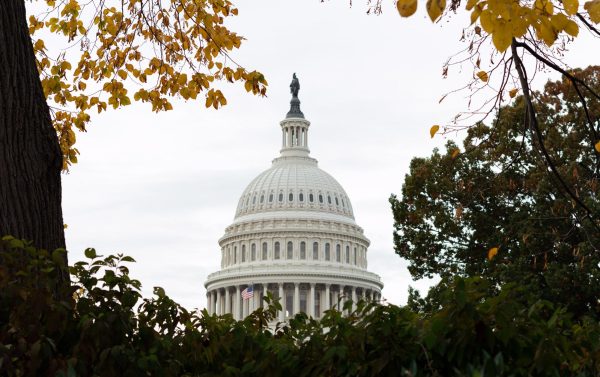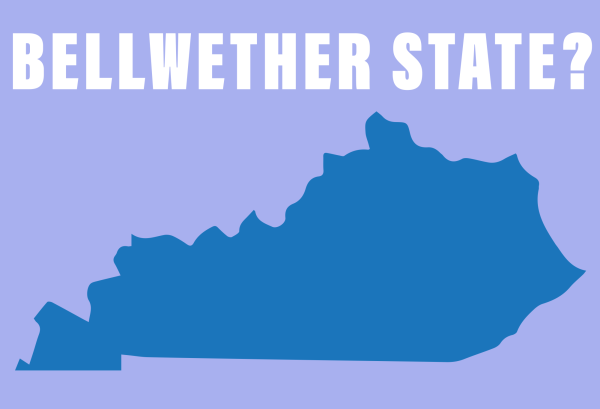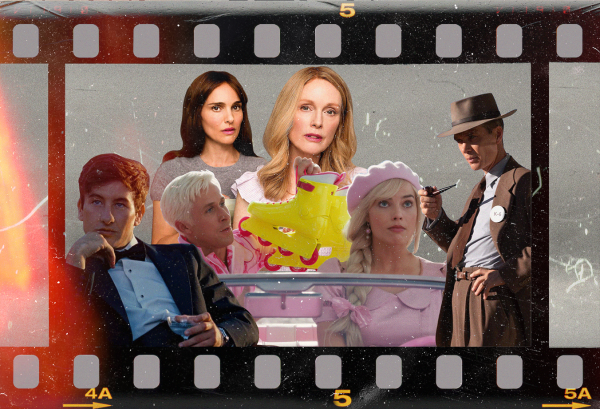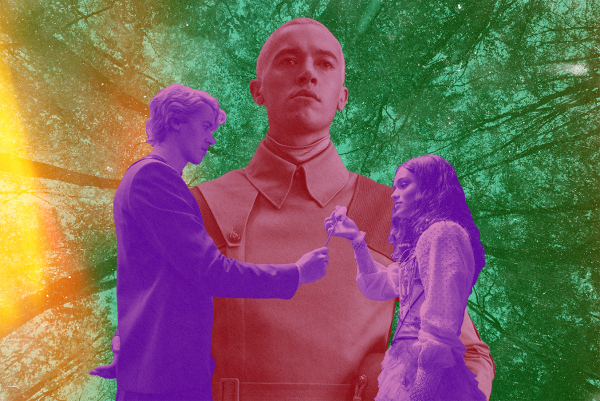The man who feeds the trees
October 24, 2019
He whistles on his way out of Willy T, his honeyed hoots echoing off the marble floor. A worn-thin cardigan hangs around his hips the way bedsheets wrap over the corners of a mattress. He holds the door for two girls sporting Greek letters on sweatshirts and continues whistling as they blow past. I observe his crow-like gait, mature and sunken. I’m lonesome, homesick even, thinking of my parents who are visiting in two weeks. So I follow him out the door for company, watching his leather satchel sag off one shoulder. It is packed neatly with checked books, spine-side up so that the white library labels peer out like eyes.
He plucks a box of Goldfish crackers from his bag and makes for the recently planted trees, which have been wrapped in green canvas jackets at their scrawny trunks. He scatters the crackers in loose circles and is undisturbed when I approach and ask him, “Why Goldfish?”
“The blue jays and the squirrels eat them.” He moves onto the next tree. He works at the university, I suppose, but this isn’t his job. I go on after him, noticing the rustling branches overhead. “This keeps them out of the trash cans, the fast food, off the streets,” he says, taking on a more waggish tone.
“Right,” I say. “That makes sense.” And I suppose it does.
He hands me a fistful of plump crackers. I taste the honk of cheese in the air between us. His hand is the size of a small shovel turning over mine, his fingernails trimmed and well-kept but gingered and dusty now at the tips.
I walk to a tree base not yet inhabited by salty contraband. I funnel them from my closed palm while I loop around the green coat, which he tells me is tried to keep chipmunks from digging around the loose roots.
A scorching seam sharpens on the horizon behind us and the blackening sky sinks into it. It looks like the profile of a burnt grilled cheese. I feel the dark draft on my newly shaved neck as I fetch another handful from the man, who is still whistling agreeably.
“There’s not much of a stretch left in the evenings,” the man says.
“It will be winter before we know it,” I reply.
The springy boughs overhead bobble and the dusky silhouettes of squirrels scutter from trunk to trunk racing across the cold grass. Mobs of blue jays crash into the empty trees—first a few, but then in flocking bunches, causing the branches to dance a kind of sunset salsa.
The squirrels and birds watch us drain the last of the box in two palmfuls. Their gazes are heavy-set on us and the Goldfish blazing on the ground below as they cry and chirp in concert.
“Their chant,” the man says. He’s heard it before. He props the box open entirely.
I imagine the crackers flapping like real fish, darting away and giving chase to their hunters.
The man holds out the bottom of the box and twirls in a carrot-colored cloud of crumbs, summoning the raid. He picks up his bag and trudges off without saying goodbye, slinging his satchel back over his shoulder. When I call after him—“nice to meet you!”—alarming the passersby to and fro-ing at the library, he doesn’t turn around.
The man who feeds the trees just holds the empty box above his head, the foil lining glistening in the last of the sun as the birds and squirrels descend on the smattering of tree-side favors like a gang of hungry children.














































































































































